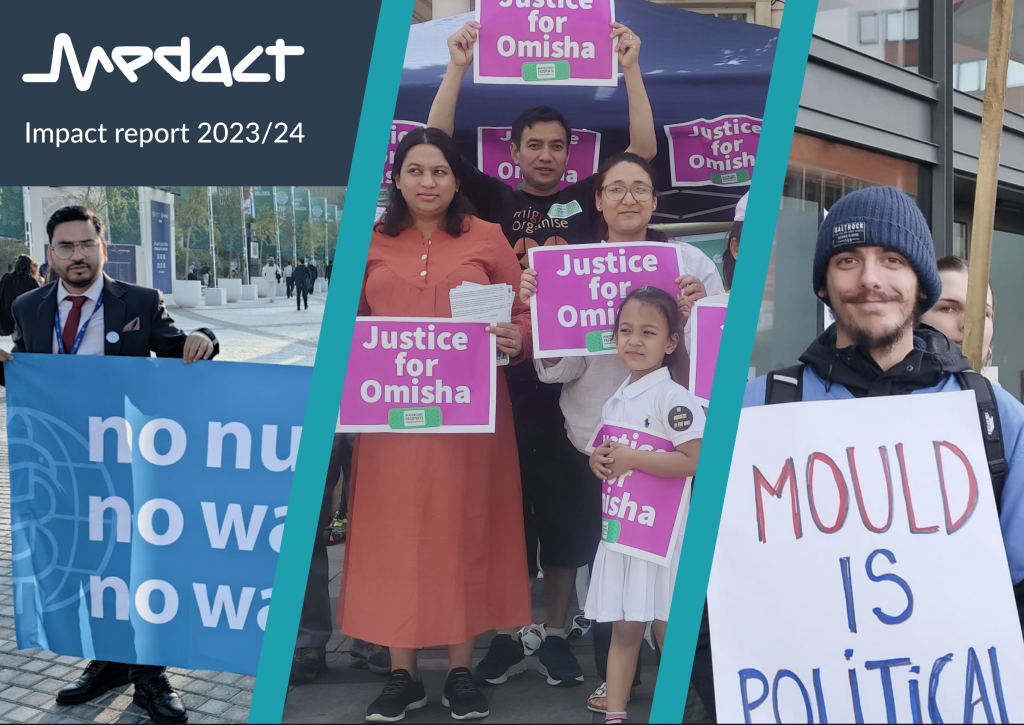This is the digital edition of our Impact Report 2023–24. You can also download a PDF version.
A message from the Chair
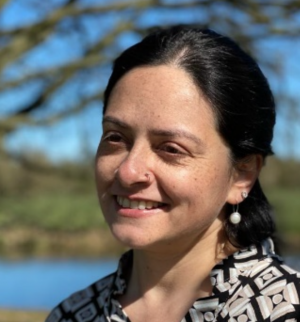
Professor Anuj Kapilashrami
Chair of the Board of Trustees
It has a been over a year since I took on the role as Chair of Medact, a year that saw multiple crises, rights violations and health injustices, as well as an unprecedented number of elections in countries that are home to nearly half of the world’s population, campaigns marked by polarised political discourses and disinformation, critical geopolitical shifts resulting from trade relations and continued wars and devastation in countries across the globe – from Sudan to Gaza.
And we saw resilience and resistance – landmark attempts to build hope and global solidarity to counter the global political and economic order and maintain democratic spaces of protest; to name a few, The People’s Health Assembly in Argentina, and Our Future is Public in Santiago. Closer to home, we have marched in solidarity against war and genocide in Gaza, highlighting the systematic destruction of hospitals, human lives, and inaction by the international community as a health justice issue. We supported our members up and down the country who are taking action to demand the UK government does what it should to bring about a ceasefire, and to take action within their institutions to push for positions that reflect the severity of the situation for civilians and health workers on the ground. Across the country we also joined demonstrations and solidarity actions on the housing crisis and rampant fuel poverty, and for the restoration of climate, nature and environment.
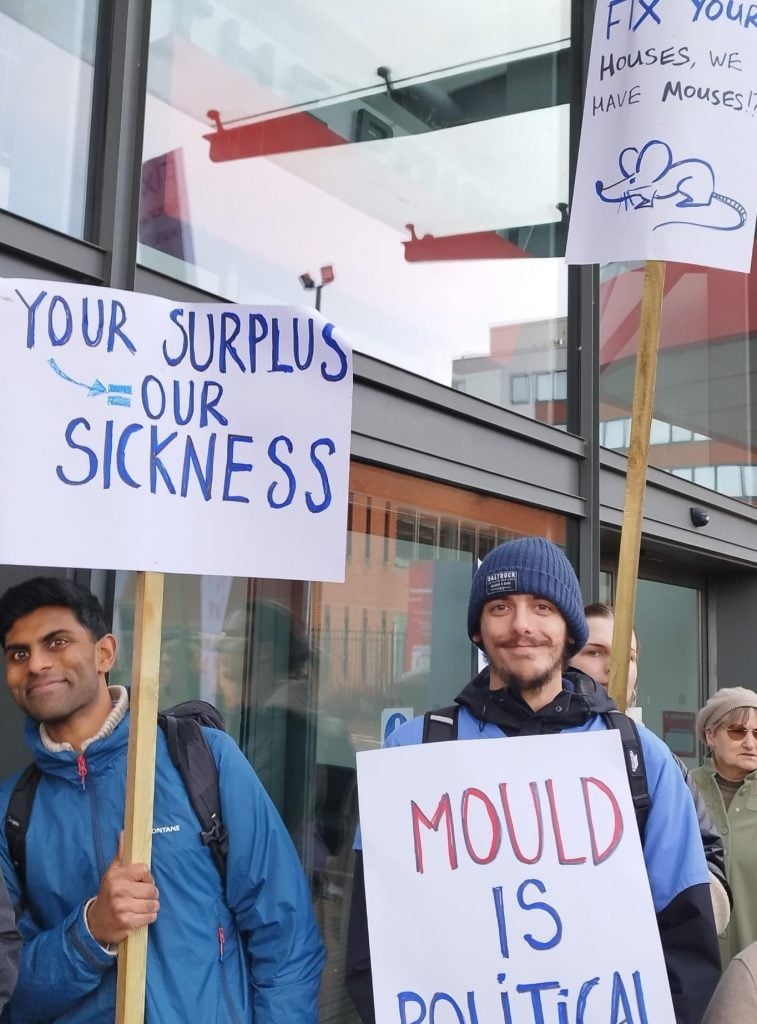
Organising has seen us deepen our skills, widen our community and ramp up our action. Across 2023/24, we have continued to organise amidst the backdrop of violence, deepening economic inequality manifesting in the cost-of-living crisis, widespread industrial action, and worsening hostile environment policies. This has meant organising across new spaces and adopting new strategies, speaking to the strength of the relationships, skills and networks that health workers both within and beyond our movement have spent years building.
On the organisational front, we bade farewell to Sophie, our former Medact Executive Director, and entered a year of transition led by a team of Interim Co-Directors. While we are in the process of finding a new Director to lead the organisation in these times of uncertainty, we made good progress on multiple fronts. The team has commenced a consultative process on the next organisational strategy, conducting workshops with members over the last few months, gaining valuable insight from our movement around the role of health workers in the struggle for health justice and Medact’s approach to community organising for achieving change.
I would like to take the opportunity to thank each one of you for your continued support and for walking every step of this journey with us. This year we are entering a new political landscape. With Labour’s landslide victory at the general election and Sir Keir Starmer appointed as the new Prime Minister, change is in the air. A new government, under one party, offers hope and new possibilities – an opportunity for instating rights-based policies that can bring about transformative change.
But there is work to be done and maintaining the status quo is not the answer. It is time for a radical transformation, for health workers to unite – to re-imagine health and resuscitate our national health service back to life, and to build local, national, and global solidarity for a just and healthy world.
Let us not lose momentum. Let us not lose hope.
Health & Human Rights: Patients Not Passports
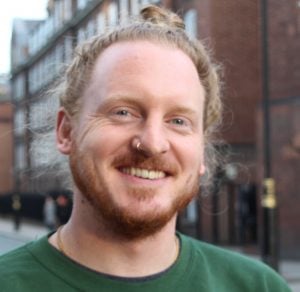
James Skinner
Human Rights Campaigner
Across the Medact movement we have seen another tireless year of organising against the racist systems designed to exclude migrant communities from healthcare. From assessing health needs and improving access to care with asylum seekers housed in hotels, supporting anti-raids groups in resisting deportation vans, and running rights and advocacy trainings to challenge NHS charging – everywhere Medact members are fighting to improve conditions right now and win the bigger battles against the hostile immigration system.
The Patients Not Passports campaign continues to support a thriving network of groups, coalitions and individuals working towards no borders in our NHS. This year we re-launched our NHS Charging Toolkit, a detailed resource to support patients, health workers, community support workers, and anyone facing NHS charges. Read on to hear about the work happening in groups across the country.
The Justice for Omisha Campaign
Reeja Shrestha
Omisha’s mum
It has been nearly two years since we started working with Migrants Organise and the Patient Not Passports campaign against the injustice of NHS trusts charging migrants for healthcare. It all started when our local hospital sent us a £76,000 bill for our daughter Omisha’s hospital stay and life-saving treatment. Our immigration status meant that Omisha was not entitled to free treatment, even though she was born in this country.
The hospital’s overseas officer teams have made various attempts to make us pay the bill since her admission to the local hospital. They have written to us many times and reported us to the Home Office regarding the NHS debt, which affects our visa application processes. We’ve told them many times that we do not have enough money to pay the debt. However, they haven’t listened or showed any compassion towards our situation and reported us to the Home Office.
We did not have any choice but to start our petition and the ‘Justice for Omisha’ campaign, and to speak up. With the support of this wonderful team of campaigners, we have managed to achieve our biggest win for the campaign, which was an apology letter from the hospital’s CEO and a commitment that they won’t pursue the debt in the future.
This was possible because of campaigning and sharing our story with the public. It has also helped us learn that we are not alone in this, and that many migrants like us are suffering in silence. We also came to know that people are not aware about the unjust system of NHS charging and the wider Hostile Environment and its effect on migrants.
Recently, our campaign received the ‘David and Goliath’ award from the Sheila McKechnie Foundation. This prestigious award has given us an opportunity to make more people aware about the Hostile Environment and NHS trusts charging migrants in a wider public platform.
Our fight will continue until we get justice and clear the NHS debt from our immigration history. Our campaign’s main motive is to end the Hostile Environment for migrants and refugees, and to make the NHS universal for all. And it is possible – if we all come together and fight for justice. People power will help to change the law and prevent hospitals from charging people.
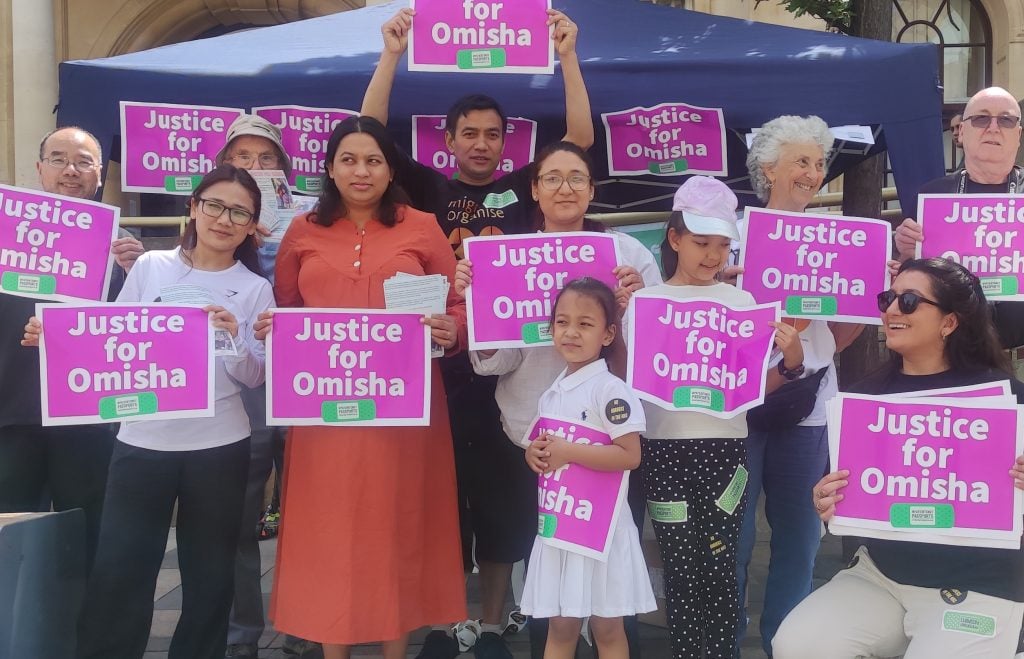
Camden & Barnet Patients Not Passports
Cassie, Jake, Ruth
Following our second community organising event in March, Camden & Barnet Patients Not Passports are excited to be expanding our community network! We’ve established monthly meetings to bring our diverse experiences in organising, advocacy and healthcare together to build momentum in the campaign to end patient charging and the harms it causes.
Through our Freedom of Information requests to the Royal Free London NHS Trust we were shocked to see that hundreds of patients are being charged across the trust, many of whom are then placed on repayment plans of £10 or £20 per month. This means little to the trust’s finances but can have devastating impacts for the marginalised individual being charged. Tragically, charging at the trust disproportionately impacts women via the maternity department.
We have since been regularly attending trust board meetings to engage with and challenge the board about this, and to demand an end to charging and a formal investigation into the harms it causes. In a positive step, the trust has agreed to launch an investigation into charging. We’re especially grateful to Patients Not Passports members in Lewisham and Greenwich for helping us put pressure on the trust to start this inquiry!
So far, this investigation has been outsourced to KPMG. We’re therefore now working to hold the trust board accountable and ensure that this investigation is carried out appropriately, centring those who are affected by this hostile environment policy.
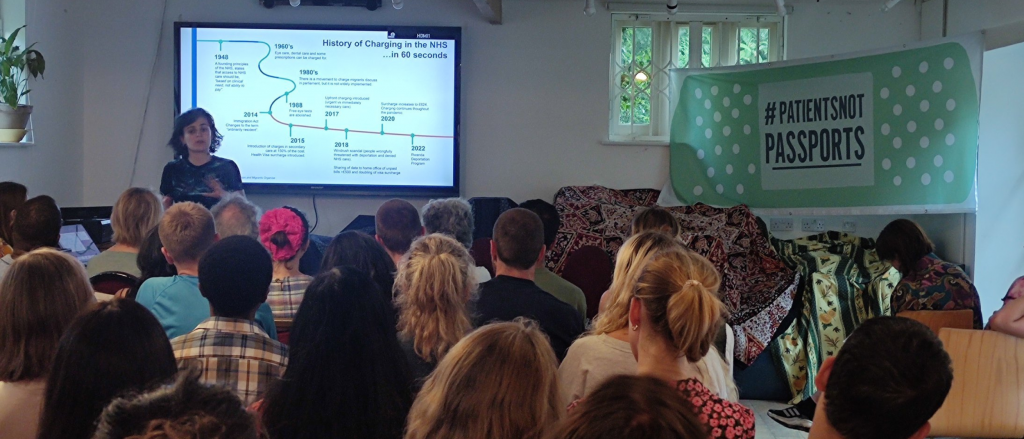
Cambridge Patients Not Passports
Sylvie & Elizabeth
We set up our group in September 2023 and in November, with the help of Aliya and James, held our first event where we screened the powerful NHS Borderlands film. Through this, we started raising awareness of NHS charging policies and their impacts on patients, and recruiting more people to our campaign.
Since then, we have been working to raise awareness of NHS charging, particularly amongst healthcare workers locally. In January we ran a teaching session for junior doctors in the paediatrics department in Addenbrookes, which inspired productive conversations about people’s experiences. We then held a Train the Trainers session, where James came up to Cambridge and we learnt skills that will help us when hopefully running more of these sessions in the future.
We have just launched a flyer to help raise awareness of the campaign, and point people in the direction of our new reporting tool which we hope will help us find out more about the impacts of NHS charging on patients locally.
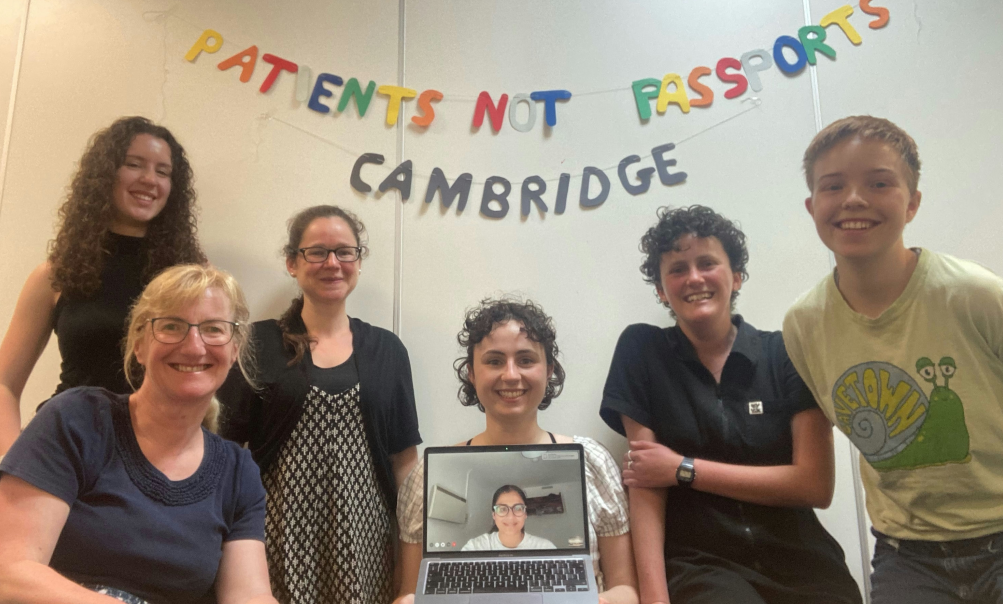
We are trying to raise awareness outside of the hospital, and recently held a stall at a local fair with another during Refugee Week. Also in Refugee Week, two of our members spoke about the campaign at a panel, organised by The Centre for the Study of Global Human Movement at Cambridge University, on the challenges that refugees and asylum seekers face accessing NHS healthcare in the UK. Our next challenge is that several key people are leaving Cambridge and will leave a big hole, so we need to do some recruiting!
Economic Justice & Health
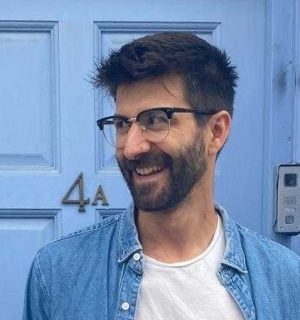
Jordi López-Botey
Economic Justice Campaigner
At the national level, this year Medact has deepened its involvement in the Homes for Us coalition – a network of housing organisations campaigning to revitalise and rebuild social housing in the UK.
Medact is the only public health organisation involved, and Economic Justice group members have helped ensure that public health is central to this work. Our members have persistently held an analysis that calls for structural interventions in order to address the health inequalities they see as health workers.
As part of the coalition, our members have been actively involved in advocacy and lobbying work. They have been delegates in meetings with key stakeholders such as the National Housing Federation and the former shadow housing minister, and have also been actively involved in writing submissions to the housing minister and parliamentary commissions.
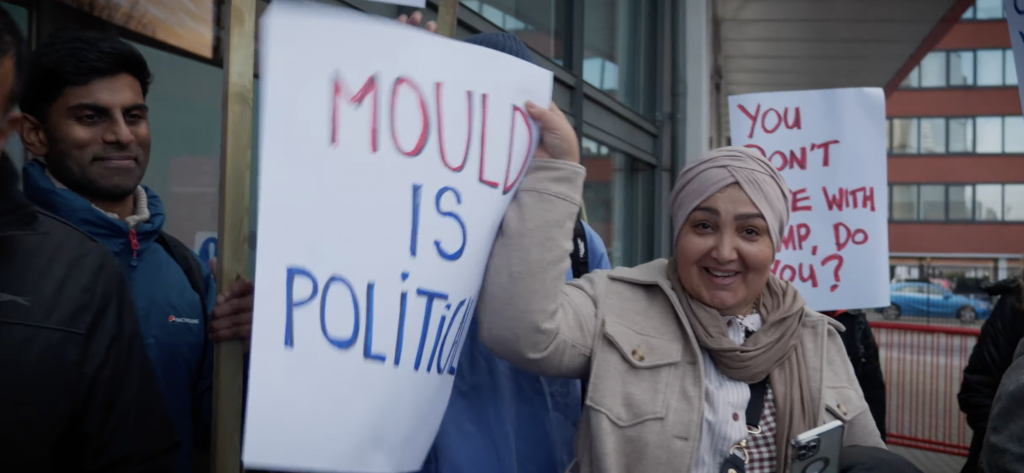
In November 2023, we joined a national protest to stand in solidarity with social tenants rallying against the grotesque “Affordable Housing Awards” – an annual self-congratulatory ceremony for housing associations, councils, and their partners.
In mid-March, in collaboration with the Homes for Us alliance, we released a new short documentary: Mould is Political. Produced by tenants and health workers fighting for healthy homes, it demonstrates how black mould is impacting people’s lives and health. We projected a short version of the film onto the Houses of Parliament at the launch, followed by a premiere screening event that brought tenants and health workers together. Medact are mobilising health workers as part of efforts to build a health campaign for social housing. This will involve developing resources framed around our core demands, and building power among health workers locally and nationally, at the grassroots level, through community events, political education and actions as part of the coalition. We started with an online gathering on 25th July and the launch of a new briefing, Homes for Health: The Public Health Case for Social Housing.

London Housing and Health Group
We formally launched the London Housing and Health Group in May 2023. So far the members involved have produced research tools used for housing organising, spoken at tenants’ meetings, drafted a policy briefing for local authorities, written reports showing the health impact of housing addressed to Harrow council, and spoken out in broadcast media. This group connects health workers from across London to find a place where the material and political causes of ill-health can be challenged in solidarity with the communities affected.
In Harrow, alongside Harrow Law Centre, we’ve been supporting local residents whose health is being harmed by the appalling conditions at Krissh House – a converted office building that is covered in black mould and damp. Interviews performed by Medact members found the majority of children and adults living there were experiencing major health impacts due to these conditions, ranging from asthma to chest infections, allergies, skin problems and mental health difficulties.
Harrow Times wrote about the case and spoke to our group members, including children’s A&E doctor Amaran Uthayakumar-Cumarasamy. This helped to pile the pressure on Harrow Council, which is now preparing to take legal action against the private landlord!
We also held a Harrow Housing and Health hearing in May, where we invited residents from across Harrow to share their experiences. We are now looking to grow our campaign, supporting more tenants in blocks, onboarding more local health workers and increasing the pressure on the council.
Throughout this work we have engaged with the council’s environmental health team, local GP practices, members of the public health teams, and local family hubs.
Campaigning work in East London
Medact members have been busy with local work supporting tenant-led campaigns in Tower Hamlets. We attended door-knocking sessions to connect with tenants and gather more data and information on the impacts of insecure and poor-quality housing on health. Tenants are using this information to shape their demands and design the solutions they want for their homes and estate.
Our scoping has identified Tower Hamlets as an important site for interventions due to the borough’s high levels of housing insecurity and associated health impacts. We are currently supporting tenants with research and advocacy, workshops on housing and health, and data collection to document the harms of insecure housing. We are also building local networks to support London Renters Union campaigns.
Medact members also organised a ‘Housing and Health’ workshop for health workers at Barts NHS trust. Hosted by the Barts Education Academy, the event was a great way of bringing a wide-ranging analysis of housing and health inequalities, and provided clinicians with practical advocacy tools to support patients affected. We are currently engaging with the council’s public health team to ensure that health shapes their approach to housing policies and local enforcement of standards.
From group member to Movement Organiser
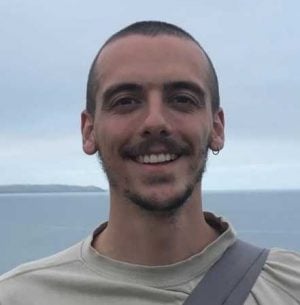
Calum Barnes
Movement Organiser
Being a member of the Economic Justice group and working as part of the London Housing & Health group has been a privilege. On the local level, in the process of advocating for change and standing alongside ally organisations and unions, I have begun to feel a sense of community.
Within the group I have formed lasting friendships and felt I have made a difference to people’s lives in a way which I did not feel I was able to in my day-to-day as a health worker. This community feels part of a larger movement due to our work within the Homes For Us coalition. Holding this national space and supporting our allied organisations gives me hope.
This housing movement is powerful and growing, and I feel empowered and optimistic for the future for the first time in a while. I’m so excited to have now joined the Medact staff team as Movement Organiser, to continue this work, and to help make connections across all of Medact’s local groups.
Peace & Security

Sarah Lasoye
Transforming Peace & Security Campaigner
It’s been a difficult year in UK Peace & Security campaigning as we work within and against a beleaguered political landscape. The UK government has continued to commit to hard national security approaches: investing in nuclear weapons, expanding the definition of extremism, emboldening police, and further criminalising dissent and protest.
Our steadfast resistance is as urgent as ever, and in the last year as Peace & Security campaigner, I’ve been proud to work with our members: taking action, strengthening campaigning skills, and sharpening our strategies to effectively achieve our demands.
Securitisation of Health
This year, we have prioritised building capacity and skills of group members to effectively take on local campaigning that resists the Prevent Duty in health. This has meant deepening engagement with monthly meetings and onboarding new members. We ran two in-person (and online) training days in early 2024 focused on campaigning and facilitation skills, and communications and spokesperson skills. We also supported members to attend the ‘Organising for Power: The Core Fundamentals’ training programme in May 2024 to build their workplace organising skills.
In June 2024, the group held an in-person strategy day, reviewing our Prevent strategy from 2021, reflecting on the current political landscape and UK context, and beginning to build a clear strategy for the next 12 months of our anti-Prevent campaign. We’ve now formed three working groups to streamline our work: Workshops and Public Engagement; Policy and Lobbying; and FOIs and Research.
In this last year, we have also delivered training sessions about Prevent – for Students for Global Health, and to health workers at Leicestershire Partnership NHS Trust and Brighton and Sussex Medical School. The Workshops and Public Engagement working group has begun to focus on updating and rolling out the ‘Alternative Training on Prevent’.
Following our Prevent Roundtable last year, our Policy and Lobbying working group are focused on supporting mainstream health organisations to shift their institutions to issue a position statement against Prevent, while our FOI and Research working group will be meticulously updating our knowledge on Prevent referrals in the NHS to strengthen this campaigning activity.
Nuclear weapons
The Nuclear Weapons Group has had an active year. From August to November 2023, the group developed and delivered an educational webinar and briefing ‘Nuclear Militarisation – How it threatens humanity’. The webinar was attended by over fifty people from the UK, Europe and North America across a range of medical disciplines, and has become a standalone resource for the group to engage the public on the urgent threat posed by nuclear arms.
Members have continued taking localised action calling on banks to divest from nuclear weapons as part of the Don’t Bank on the Bomb (DBoTB) campaign. This year, the group chose to prioritise taking DBoTB nationwide, collating nuclear divestment information and developing campaigning resources to support people to take tangible, collective action against banks and financial institutions. The DBoTB working group has been steered by colleagues from a range of partner organisations, and I will support members as they take on this work and prepare to launch the campaign as part of ICAN’s “Global Week of Action on Nuclear Spending” in September 2024.
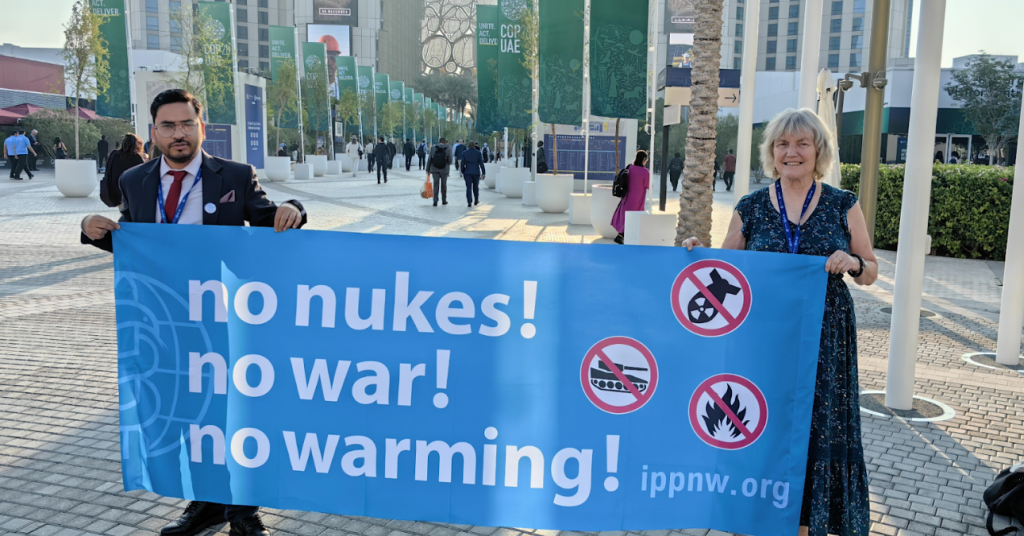
Our member Bimal Khadka attended the COP28 climate talks as a delegate of International Physicians for the Prevention of Nuclear War (IPPNW) in December, engaging in dialogues with the goal of nuclear disarmament for climate justice and health. IPPNW and the Women’s International League for Peace and Freedom organised a crucial action to bring attention to the elephant in the room at the talks: the military-industrial complex.And the group has continued to be active across nuclear disarmament networks and organisations, feeding into research from the Nuclear Education Trust, and attending meetings of the IPPNW Council, CND and ICAN UK. The group has continued to speak on nuclear abolition for health justice in university and community events across the country, including Stop The Arms Fair’s week of resistance to the Defence and Security Equipment International (DSEI) Arms Fair.
Joining the Securitisation of Health Group

Jack Burnett
I had wanted to find a way to become more involved in Medact after researching its history in the fight for nuclear weapons non-proliferation as part of my undergrad, and studying for a masters in public health at the London School of Hygiene & Tropical Medicine. Last year, I found the Securitisation of Health group and joining was the perfect way to get involved.
Sarah has been a great point of contact and has been putting a lot of effort into strategising our moves and organising volunteers with different skills. Altogether the group have had three training sessions over the last few months, and these have imparted invaluable skills to me that I would not have the chance to learn elsewhere – skills I can use in organising, campaigning, lobbying, and creating change for health justice.
Along with another group member, I lead the Policy and Lobbying working group, and it is great to be trusted to think of new campaign ideas, but also to have the knowledge and guidance from Medact to let me help make meaningful change and help pull the tide of opinion to end Prevent.
Getting involved with the Nuclear Weapons Group
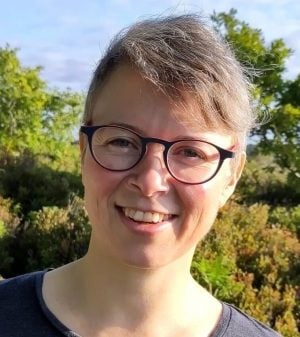
Lorna Mundy
I am a mental health Occupational Therapist working in Higher Education and I joined Medact’s Nuclear Weapons Group in March this year.
I joined the group because I am keen for my activism to be about better understanding and disrupting militarism, colonialism and structural violence. And I really value Medact’s health-justice approach and commitment to anti-oppressive approaches.
The group were super welcoming and I felt part of it from the beginning. I was immediately offered ways to be actively involved and encouraged to imagine ways that the group could support possibilities that I might want to develop.
I joined a working group to develop a nuclear weapons divestment toolkit ‘Don’t Bank on the Bomb’ – working with longstanding members to produce resources and think about how best to support others to call on their banks and institutions to divest from nuclear weapons manufacturers.
I’m looking forward to developing future campaigning ideas with this group.
Climate & Health
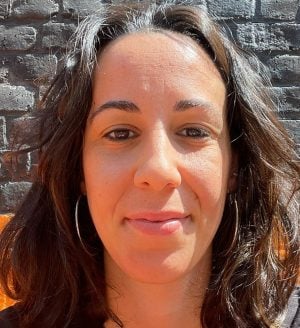
Maria Carvalho da Silva
Climate & Health Campaigner
I joined Medact as the campaign lead for Climate & Health in September 2023, and have since come on a journey of strategising and action with all the members involved. We’re excited to be developing our work on linking housing to the climate crisis, and to work more closely across the movement with members of the Economic Justice group who have done brilliant work on housing justice campaigning.
In those initial months, we supported members in the Health for a Green New Deal network with one-to-one talks and group strategy sessions to progress campaigns on air pollution in Brighton, public regulation of buses in Bristol, and the anti-incinerator campaign in the North East. Medact Scotland also took action this year, organising a well-attended educational workshop for MSPs, “Climate and Health, your constituents’ concerns”.
From all this local organising, we have learned a lot about how to lend the health voice to local campaigns, and how to develop health workers as community organisers working alongside coalitions. We are now using this model in the evolution of our campaign direction, focusing-in on energy justice and housing quality. As our Public Health Case for a Green New Deal briefing stated loud and clear: we need quality homes for all, fair access to energy, and a rapid just transition to cheap, renewable energy.
Part of this work has been working closely with groups like Fuel Poverty Action and Unite Community. Together, we organised a series of actions on the day of the spring budget, calling on the government to address the crisis of cold homes that is killing people – particularly the most vulnerable in society.
From January until now we have also been actively involved in the Warm This Winter Coalition, advocating nationally for policies that bring an end to fuel poverty whilst also bringing an end to our dependence on fossil fuels.
These connections have been key in helping to guide our new strategic focus. On July 3rd, we hosted an online gathering, where people joined to listen to speakers leading the way in campaigning on cold homes and fuel poverty. At this event, we launched a briefing Homes for Health: The Public Health Case to Warm Our Homes, Not Our Planet, as well as a messaging guide and an open letter as part of an online action toolkit.
This gathering was part of forming the basis of a longer term strategy of how health workers can support this fight for good quality housing, both at a local level alongside tenant unions and other community groups, as well as a national policy level. Together we’re growing the movement to bring about policies to end the public health crisis of cold, damp homes, and to address energy justice and fuel efficiency as part of a just transition away from fossil fuels. We’re excited to deepen our local organising alongside communities to win local battles and strengthen national advocacy by bringing the health voice. It’s energising to see local connections already taking shape – as described in Gemma’s account of Medact Glasgow’s formation in the Movement section.
Medact North East
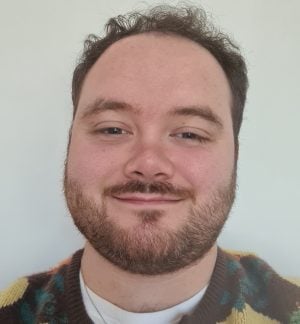
Matthew Keegan
Medact North East has been working closely in coalition with ‘Stop Incineration North East’ (SINE), over several months, to cooperatively oppose a planned incinerator, ‘Tees Valley Energy Recovery Facility’ (TVERF), due to be built in the region.
We are deeply concerned about the multiple impacts this incinerator will have on the health and wellbeing of local residents, including from direct emissions, lorry fumes, noise and light pollution, and disposal of toxic ash and other byproducts – as well as further afield through greenhouse gas emissions. The area where the incinerator is to be built is already heavily impacted by long-term political choices of economic disinvestment, and air pollution – an example of an ‘urban sacrifice zone’, as described by Centric Lab’s ‘Right to Pollute’ report. This injustice is compounded by the fact that the incinerator will be handling waste from seven local councils across the North East, who have signed on to and bankrolled the project. In practice, this means waste from other, often more affluent areas will be diverted to Teesside to be burned.
Through our collaboration with SINE we have worked to bolster their efforts directly with numbers and energy, as well as adding a health voice to their case against TVERF. Thus far this has included holding a joint strategy meeting and establishing monthly coalition meetings, asking questions of and meeting with councils involved in the project, and mobilising health workers within the region to support an open letter to oppose the TVERF. We are building our organising skills in 1:1 conversations through leafletting in workplaces, and in media through preparing a press release for the open letter, with training from the Medact team.
Getting the opportunity to work closely with SINE has been a gift for our group. Health workers, as ‘trusted communicators’, have a lot to offer in terms of relevant health perspectives, and perceived ‘legitimacy’ when communicating with media and local stakeholders. What we often struggle to provide for ourselves, however, is time, numbers or on-the-ground connections. This is where collaboration with a local, grassroots organisation has really made the difference. Our friends at SINE are passionate, informed and tireless. With them alongside us, it’s only a matter of time before we shut this incinerator down!
Medact Bristol
Dr Nazanin Rassa and Nushka Marinova
We have had a year of joining forces with our incredible local community campaigns and organisers, and strengthening the Medact Bristol group. We have campaigned with local grass-roots organisers such as Reclaim Our Buses, calling for public control of buses throughout the West of England. This work is crucial to improving accessibility to green spaces and healthcare, as well as to encourage people to leave their cars with a better alternative.
We attended local governance meetings and created a policy briefing called Public Control of Buses via Franchising, highlighting the health case for reliable, safe and accessible public transport. We contacted candidate MPs for their response on the public transport issue as well as the press, and provided information and support for the campaign in a Transport Clinic during the by-elections. This attracted the public support of one of the MP candidates and many members of the public who shared with us their ideas for change. We also organised a movie night and an event with Dr Elizabeth Marks, a leading eco-distress researcher, which helped us recruit new members.
Standing together with Bristol communities on issues they care about has been really energising for our group. It is an incredible privilege to be able to support our communities by lending our health perspectives and resources, as well as using our privilege and power to advocate for health and climate justice. Medact has been instrumental in upskilling us as organisers and supporting our local activities.
After the summer, we will be focusing on campaigning for healthy homes and climate justice, as well as re-establishing our Patients not Passports work. We look forward to building with and standing in solidarity with our communities in Bristol and nationally.
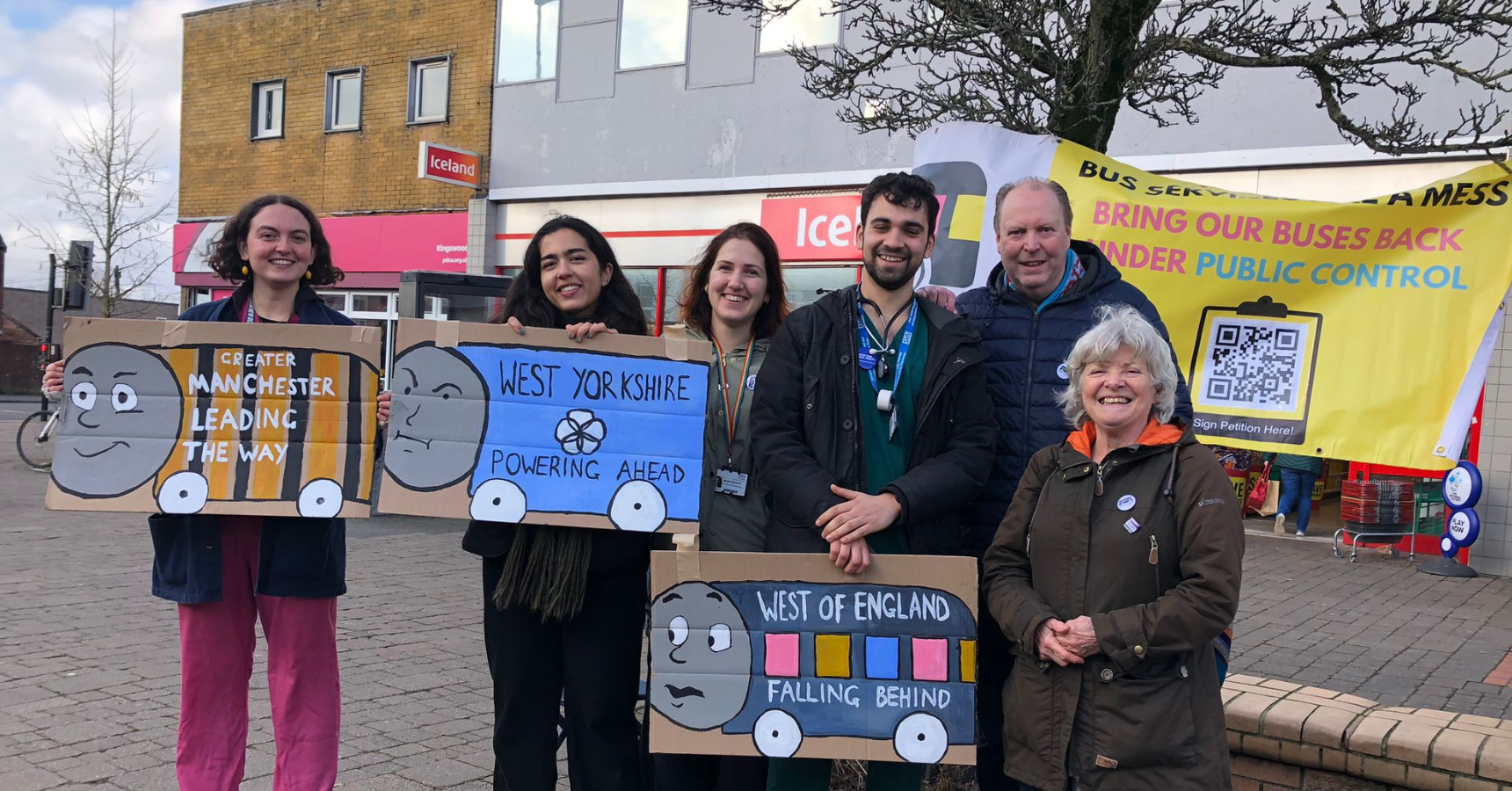
Research
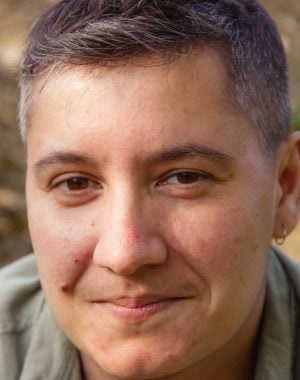
Hil Aked
Research & Policy Manager
Criminalising Distress
After 18 months and the hard work of so many people involved, we were excited to launch our report Criminalising Distress in April. This project was an investigation into the practices associated with the Serenity Integrated Mentoring (SIM) scheme, which targeted people at high risk of suicide and self harm who frequently contact emergency services, and became a national scandal in 2021 as a result of a campaign by the StopSIM Coalition.
The report outlines ongoing police and NHS schemes which continue to criminalise distress today, including schemes through which police remain embedded in the mental health system. Despite calling for harmful practices criminalising people in mental distress to be “eradicated”, NHS England has failed to stamp them out. This is in part due to a lack of action to address the deep systemic conditions which enabled SIM in the first place, including an underlying culture of unaccountability and blame-shifting.
Criminalising Distress has been the first major piece of primary research we undertook as a collaborative team made up of Medact Research Network (MRN) members. It was also the first that has been informed from the start by community members affected by the issue at hand: former members of the StopSIM coalition who acted as the steering committee at every step of the way. It has been a learning journey for the research team, as we learned to go at the pace required for effective collaboration across a large team, guided by those most affected by the issues we’re working on.
The report is based on primary research including freedom of information requests, a literature review, and, crucially, interviews with service user survivors with experience of SIM and police intervention in mental health care, as well as health workers. Thanks to the testimony of those who collaborated with us for interviews, we were able to build on the picture of human impact and harm caused by SIM-like practices, which survivors have been speaking out about since well before 2021.
Based on these findings, we call for an end to punitive, exclusionary and discriminatory practices, and NHS collaboration with police to criminalise people in distress, and for the state to address the social determinants of mental health upstream as well as funding non-coercive, community-based crisis support. Of most importance to our movement, we also call on health workers to support survivors’ demands for health institutions to end these punitive practices.
The online report launch in April was engaging and educational, bringing survivors of the mental health system together with health workers, with critical contributions from both our panel and attendees. We secured coverage in Disability News Service, as well as in the BMJ – the first time the latter covered SIM in a critical light since the scandal broke.
We hope this research will contribute to ongoing work to bring about long-term accountability, and strengthen resistance to the securitisation of health. Our own efforts in this are underway as we seek the consensus of medical institutions such as Royal Collages on demands we set out.
Unhealthy Liaisons
In July, we also launched Unhealthy Liaisons: NHS Collaboration with the Counter Terrorism Clinical Consultancy Service (CT CCS), a report by MRN member Professor Charlotte Health-Kelly on a Prevent-related scheme that further co-opts health workers into counterterrorism policing activities.
CT CCS is a new NHS–police mental health team that evolved from ‘Vulnerability Support Hubs’, which were exposed in Medact’s 2021 report Racism, mental health and pre-crime policing. In this latest briefing, we explore the ethical implications of this new service, including the potential effects of security service disclosures on healthcare relationships, and health workers acting significantly beyond their health remit.
We were joined at the launch by representatives from Healing Justice London, Amnesty International UK, Prevent Watch UK and Open Rights Group, and it was covered by Middle East Eye.
This is the start of essential scrutiny of the CT CCS, which has no oversight and has not even been approved by Parliament. We call for accountability, and for Parliament, the Information Commissioner’s Office, and the GMC and other health institutions, to launch independent reviews.
Taking part in the MRN research team

Avani Ela
The Criminalising Distress Project was my first experience working in a large multi-disciplinary research team, and I loved it! Hil’s organisation and understanding nature enabled me to learn a lot in a structured and safe environment. Through my involvement with the Interview Team, I acquired valuable skills in qualitative research methods and sustained online teamwork. Despite being the youngest and arguably the least experienced researcher on board, I was pleasantly surprised to find that my viewpoints were heard, acknowledged and even encouraged.
Aside from personal growth, the Criminalising Distress project has significantly informed my career path. Eighteen months ago, I was eager to pursue a career in Psychiatry after medical school, driven by my experiences with poor mental health and my advocacy efforts. However, this project has deepened my understanding of the field’s systemic shortfalls. As a result, I am now inspired to pursue a career that allows me to effect meaningful change from outside the system.
It was an absolute honour to present our findings and research journey to an audience of around 100 people at the launch event. I am immensely proud to have been part of such an incredible project and can’t wait to witness its impact in revolutionising mental health care in England!
Unhealthy Liaisons
In July, we also launched Unhealthy Liaisons: NHS Collaboration with the Counter Terrorism Clinical Consultancy Service (CT CCS), a report by MRN member Professor Charlotte Health-Kelly on a Prevent-related scheme that further co-opts health workers into counterterrorism policing activities.
CT CCS is a new NHS–police mental health team that evolved from ‘Vulnerability Support Hubs’, which were exposed in Medact’s 2021 report Racism, mental health and pre-crime policing. In this latest briefing, we explore the ethical implications of this new service, including the potential effects of security service disclosures on healthcare relationships, and health workers acting significantly beyond their health remit.
We were joined at the launch by representatives from Healing Justice London, Amnesty International UK, Prevent Watch UK and Open Rights Group, and it was covered by Middle East Eye.
This is the start of essential scrutiny of the CT CCS, which has no oversight and has not even been approved by Parliament. We call for accountability, and for Parliament, the Information Commissioner’s Office, and the GMC and other health institutions, to launch independent reviews.
Our movement
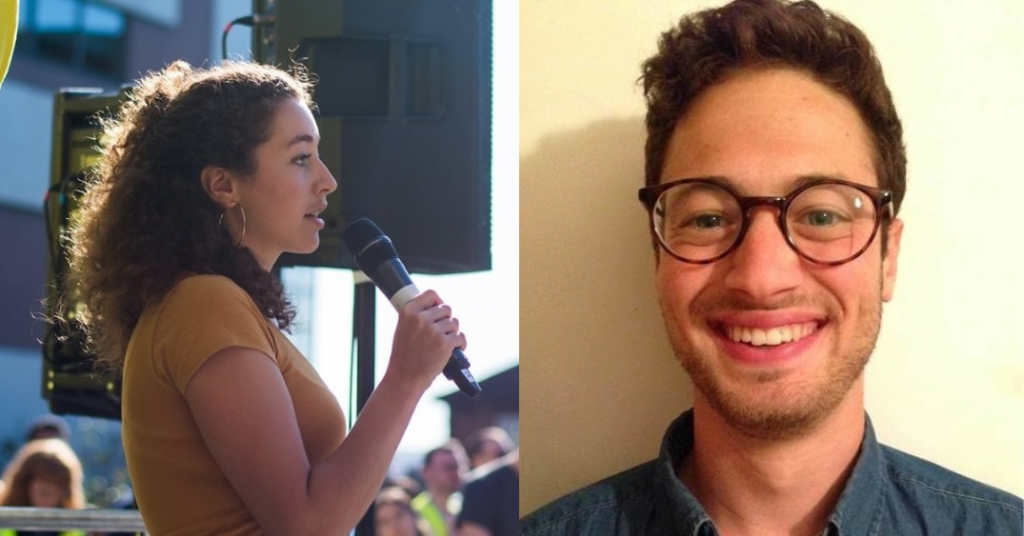
Kate Bernard and Ben Eder
Movement Organisers
Our movement continues to work together to build power in the health community – organising in solidarity with communities affected by health injustice in the struggle for transformative change. As Medact members, whether brought together by place or by issue, we make up a network of health workers fighting for health justice. Across our local and national communities, we intend to get organised and win!
As we get ready to step back from our roles as Movement Organisers, Ben and Kate want to take a moment to celebrate the joys, challenges and learning across our movement over the past year.
Throughout the year, it has been wonderful to come together with groups to run a huge variety of trainings and workshops on crucial skills for our movement – from speaking to the media, to building campaign strategy, to having all-important one-to-one conversations.
We are coming together as a whole movement more and more. In the spring, we welcomed new members at our first national ‘New Joiner’s meeting’ – an interactive session which will become a regular way for those who have just discovered us to get embedded in our work, and ready to take action. And in the summer, we held our first ‘Medact Movement Assembly’, which replaces ‘Group Check-Ins’ and offers a space for those active across Medact’s groups and campaigns to connect and share learning. It left us inspired by the diversity of incredible work across Medact, and excited for the future.
Lots of groups this year have welcomed new coordinators and brought new people into active roles. Medact Leeds ran their own ‘New Joiners’ session, and Sheffield, North East, and Bristol have all rotated responsibilities, sharing leadership and upskilling members. More and more groups are starting to work in coalitions with local community groups. It’s also been fantastic and energising to see new groups on the scene in Medact Glasgow, which Gemma talks about below.
As well as these successes, we’ve also been stretched for time, energy and resources. As members have shared, it is hard, exhausting and overwhelming. In all of this it has been understandable that groups at times have fluctuated in capacity and needed to pause or move more slowly with campaigns. But it has been inspiring to see the ways that people have continued to come together, to join demonstrations and direct actions, to share food, make zines and build community. Every day, health system workers and students are struggling in their places of work and study, to resist, to move from witnessing injustice to taking action. In that resistance, in the cracks of the system, we are seeking to practise ways of care rooted in love and solidarity.
Growing from our work over the last five years, we have started to map out our approach to building power for health justice – ‘organising-centred campaigning.’ This is a method to build relationships between people in our movement to deepen connections, while focusing on building the capacity and skills needed to shift power and create lasting change. In the first stage of collectively shaping Medact’s new organisational strategy, we have been having exciting and insightful conversations about this approach. There will be plenty of ways for you to get stuck into this over the next 12 months!
Working as part of the incredible staff team at Medact, we are inspired by organising with you. Whilst we are leaving the staff team (Ben on a sabbatical, and Kate to return to clinical work), we are not leaving the movement! We are so excited to get more involved locally in our groups in Sheffield and in the North East. We do so with hope in the ways that the health community are organising to build power and a commitment to keep learning.
Medact Glasgow
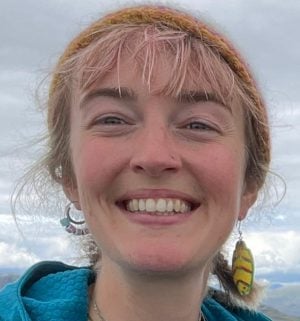
Gemma Hayward
Medact Glasgow is happy to join the Medact family!
Since it was formed last autumn, the group has gently grown together, with a curious exploration of what it means to come together as healthcare activists. In the first few months we spent time reflecting and imagining what kind of group we’d like to be, which included creating a dream board, a zine making session, and plenty of snacks!
We had a workshop mapping our journey to launch as a group, from building relationships, to building skills, to identifying campaign areas to work on locally. Through this we identified our strengths and skill gaps, and upskilled ourselves through one workshop on how to build campaign strategy and another to learn more about fuel poverty and health.
We are now moving towards campaigning on housing and fuel poverty, which has involved meeting with and learning from Medact members in Harrow who organised with residents around mould and damp. We hope to work in allyship together with Living Rent, a Scottish tenant’s union we have connected with, and have started a scoping exercise to identify other potential partnerships to strengthen local action on mould and damp in the housing system.
Medact Glasgow has become a lovely, supportive space where we feel able to share our vulnerabilities as well as our inspirations, which sometimes means super exciting meetings with concrete actions, and sometimes means pausing action and allowing time to recharge. We are excited to see what the next months hold for us and are especially grateful to movement organiser Kate for all the support and enthusiasm she has given us throughout our journey!
Medact Liverpool
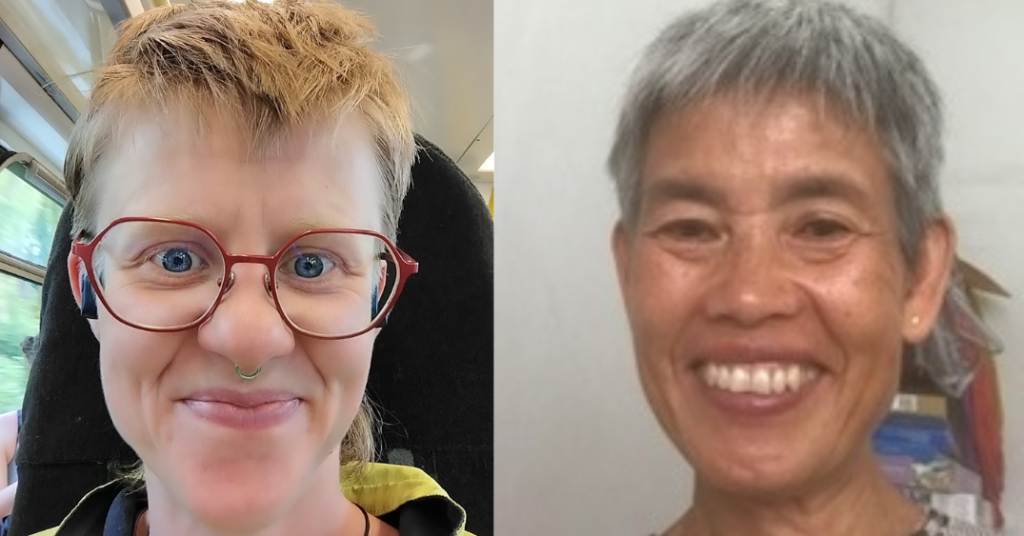
Georgina Race & Kit Oi Chung
This year, we put a lot of energy as a group into supporting each other to keep hopeful in the face of terrible events worldwide and an increasingly hostile environment for migrants within the UK.
We have continued to support the local campaign Save Oglet Shore, opposing an expansion of Liverpool airport, and agreed to support another local campaign against the expansion of a Hazardous Waste Management plant located close to a residential area where there is already poor health. Members also attended Health Workers for Palestine vigils.
Our work on the Patients not Passports campaign has been active this year. In September, we invited old and new members along to a film viewing of NHS Borderlands. We continue to work closely alongside Solidarity Knows No Borders and Refugee Women Connect in Liverpool, delivering some health education outreach sessions at a hotel housing migrant families. We are working towards the launch of the new Patients Not Passports toolkit later this summer to continue to inform and educate others around migrant charges to access healthcare.
Medact Leeds
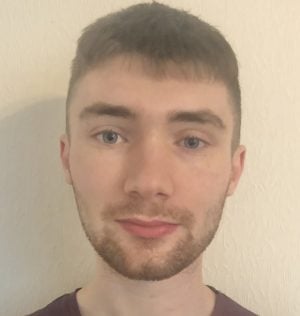
Matthew Knight
At Medact Leeds over the last year, we developed our work on the Patients Not Passports campaign by running a successful Migration is Life event in collaboration with the several other local community groups PAFRAS, Racial Justice Network, Yorkshire Resists, Stop the Scan, Leeds Anti-Raids Action. This included talks, workshops, and a film screening of NHS Borderlands. We also hosted a campaign strategy meeting to define our aims for the Patients Not Passports campaign further and hope to build on this in the future.
We have also been spending time on the Health for a Green New Deal campaign, in which we have aligned our focus with the new overall campaign focus on fuel poverty and healthy homes. We have lobbied local MPs on the high levels of fuel poverty within the region, and we are working on establishing links with other local groups focusing on this area in the future.
Our funding & finances

Paul Harris
Treasurer
Overall Medact had a successful financial year. Our membership income remains stable, while our appeals marginally outperformed expectations. We were successful in securing grant funding for our climate work, though also came to the end of grants in both our Human Rights and Economic Justice programmes. We have since secured new funding for Economic Justice, but are still seeking funding to cover 50% of our Human Rights work on Patients Not Passports. In light of continued pressure on our grant fundraising, we were able to keep planned expenditure down, however this had an impact on our cross programme organising capacity.
We ended the year with a small surplus, increasing our unrestricted reserves. However ongoing fundraising difficulty means we project to significantly spend down these reserves through the 2024/25 financial year while we seek core funding and long term sources of income for our project areas.
We will publish our full accounts shortly, following independent examination and Board approval. If you have any further questions, please get in touch with the office.

